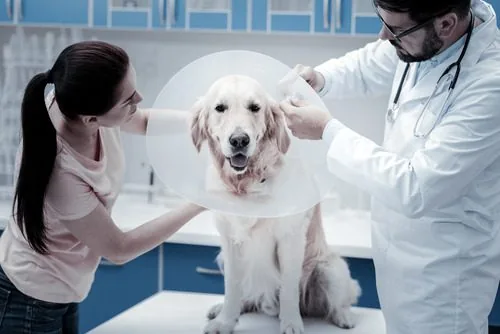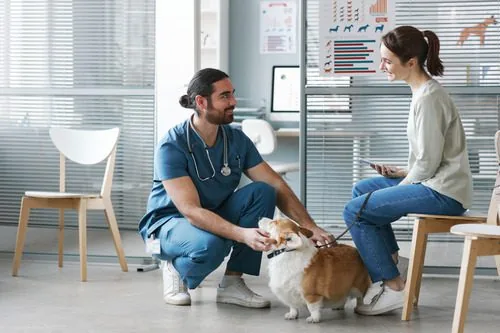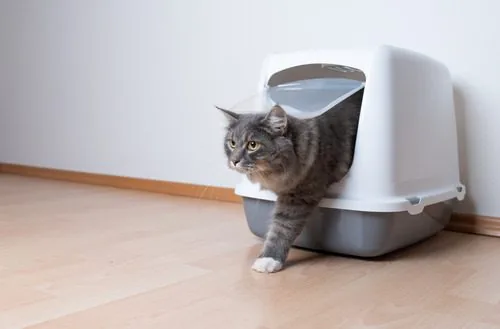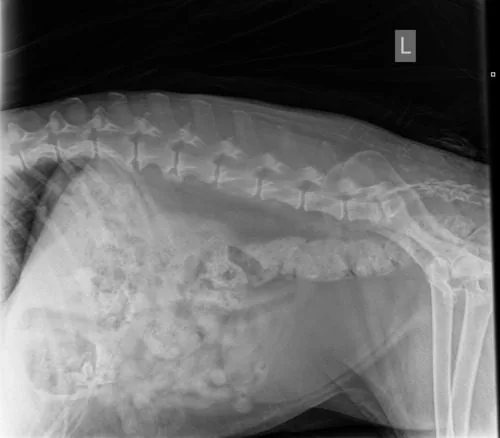Feline Emergencies: Warning Signs Your Cat is Crying for Help
Cats have a reputation for being independent, quiet, and low-maintenance, but that calm demeanor can sometimes mask serious health concerns. Cats often hide pain or distress, making it harder for pet parents to recognize when something is wrong. This can delay care in a situation that may already be urgent. Whether you’re a new cat owner or you’ve shared your home with cats for years, it’s important to recognize potential feline emergencies so you can act quickly. In this blog, we’ll cover key signs that something may be seriously wrong and when it’s time to seek immediate help from your veterinarian. If you believe your cat is experiencing an emergency, call Veterinary Healthcare Associates in Winter Haven at (863) 324-3340 right away.
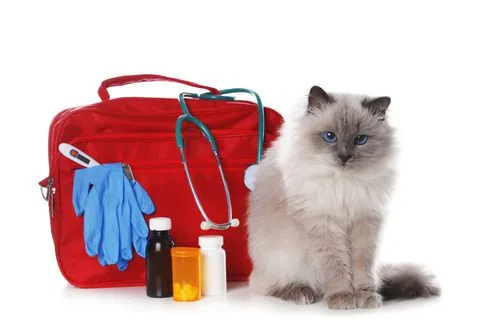
What Qualifies as a Feline Emergency?
Feline emergencies refer to sudden or severe medical issues that require immediate veterinary care. Some situations are unmistakable, like a serious injury or seizure, but others can be more subtle. Cats tend to mask their discomfort, so even small changes in behavior may point to a much bigger problem. While not every odd behavior is cause for panic, certain symptoms should never be ignored. If you’re unsure, the safest choice is to call your veterinarian. Early intervention can make a major difference in your cat’s outcome.
Difficulty Breathing
Labored breathing is one of the most serious feline emergencies. If your cat is struggling to breathe, treat it as an urgent situation and seek care immediately.
Signs of Breathing Trouble:
- Open-mouth breathing or gasping
- Rapid or shallow breaths
- Blue or pale gums
- Flared nostrils
- Excessive chest or abdominal movement while breathing
Difficulty breathing can result from a variety of conditions including heart failure, fluid in the lungs, asthma, or trauma. Your veterinarian may need to administer oxygen, take X-rays, or run diagnostic tests to identify the cause.
Sudden Collapse or Inability to Stand
If your cat suddenly collapses or can’t stand up, it’s a clear red flag. This symptom may point to a neurological issue, cardiovascular problem, or internal bleeding.
Potential Causes:
- Severe anemia
- Heart disease
- Stroke
- Seizure or post-seizure state
- Toxic exposure
Regardless of the cause, a cat who cannot stay upright or loses consciousness needs immediate veterinary evaluation.
Vomiting or Diarrhea That Won’t Stop
Occasional vomiting or a soft stool may not always be serious. However, repeated vomiting or diarrhea, especially if paired with lethargy or lack of appetite, can signal a serious problem. These symptoms can lead to rapid dehydration, which is especially dangerous for cats.
When It’s a Feline Emergency
- Vomiting or diarrhea lasting more than 24 hours
- Blood in vomit or stool
- Accompanying fever or severe weakness
- Evidence of a possible foreign body ingestion (string, rubber bands, toys)
Conditions like pancreatitis, poisoning, intestinal blockage, or infectious disease could be the culprit. Treatment may involve fluids, hospitalization, or surgery.
Urinary Blockage or Straining to Urinate
Male cats in particular are prone to urinary blockages, a life-threatening condition that prevents urine from leaving the body. It can quickly lead to bladder rupture, kidney failure, and death if not treated right away.
Warning Signs:
- Frequent trips to the litter box with little or no output
- Crying out while trying to urinate
- Licking the genital area excessively
- Restlessness or hiding
If you see any of these signs, treat it as a feline emergency and call Veterinary Healthcare Associates immediately. Do not wait.
Seizures or Sudden Neurological Changes
A seizure can appear as twitching, convulsions, sudden collapse, or confusion. Some cats may drool, paddle their limbs, or lose consciousness during an episode.
What to Watch For:
- Repeated seizures or one lasting longer than 3 minutes
- Sudden blindness
- Head tilting, circling, or inability to walk straight
- Changes in pupil size
Neurological issues may stem from epilepsy, head trauma, toxins, or infections like feline infectious peritonitis (FIP). A neurological exam and imaging may be necessary to determine the cause.
Trauma: Falls, Car Accidents, or Animal Bites
Cats are agile, but injuries still happen. Whether they’ve been hit by a car, attacked by another animal, or fallen from a significant height, trauma can cause both visible and internal damage.
Even If Your Cat Looks Fine
Internal bleeding, organ damage, or a ruptured bladder may not be obvious at first. Always have your cat examined after a traumatic event, even if they appear alert or mobile. Injuries like broken bones, deep wounds, or puncture bites also carry a high risk of infection and require prompt medical care.
Exposure to Toxins
Cats are highly sensitive to many common substances, and even small amounts can cause life-threatening reactions.
Common Feline Toxins
- Lilies (extremely toxic to cats)
- Antifreeze
- Human medications (especially Tylenol and antidepressants)
- Essential oils (tea tree, eucalyptus, citrus)
- Rodenticides and insecticides
Symptoms of Poisoning
- Vomiting or diarrhea
- Drooling or foaming at the mouth
- Tremors or seizures
- Pale gums
- Collapse
Call your veterinarian or an animal poison control hotline immediately if you suspect your cat has ingested something harmful.
Difficulty Giving Birth (Dystocia)
If your cat is in labor and having trouble delivering kittens, it may turn into a feline emergency. Delayed labor or visible distress during delivery needs veterinary intervention.
Warning Signs of Dystocia
- Strong contractions for 30 minutes with no kitten
- More than 2 hours between kittens
- Weakness or disorientation
- Vaginal discharge with no sign of kittens
Sudden Behavior Changes
Cats may not always vocalize their pain, but sudden changes in personality or activity level can be a strong indicator of distress. Concerning changes may include:
- Hiding more than usual
- Refusing food or water
- Sudden aggression or clinginess
- Excessive vocalization
- Limping or avoiding movement
If your cat just doesn’t seem like themselves, don’t wait too long to call your vet. Cats often show early signs of illness through subtle behavior shifts.
What to Do if You Suspect a Feline Emergency
Don’t try to wait it out or treat symptoms at home. If something feels wrong, it’s safer to have your cat evaluated by a professional. Always call ahead so the veterinary team can prepare for your arrival and guide you through the next steps. If you live in the Winter Haven area and believe your cat is experiencing a medical emergency, call Veterinary Healthcare Associates at (863) 324-3340 immediately. Our team is here to provide fast, compassionate care when your cat needs it most.
Recent Posts
Laparoscopic Spay vs Traditional Spay: What’s Best for Your Dog?
Laparoscopic Spay vs Traditional Spay: What’s Best for Your Dog? When comparing a laparoscopic spay vs traditional…
Laparoscopic Spay: Everything You Need to Know
Laparoscopic Spay: Everything You Need to Know Laparoscopic spay, also called a “minimally invasive spay,” is an…
When is Dog Diarrhea an Emergency?
When is Dog Diarrhea an Emergency? Dog owners know all too well that occasional digestive upset isn’t…
Is Cat Constipation an Emergency?
Is Cat Constipation an Emergency? Cats are often private about their habits, especially when it comes to…
Spondylosis in Dogs: Symptoms, Treatment, & More
Spondylosis in Dogs: Symptoms, Treatment, & More If your dog is slowing down or showing signs of…
About Veterinary Healthcare Associates
Veterinary Healthcare Associates in Winter Haven, FL, was established over 30 years ago as Maxwell Animal Clinic by Dr. John Maxwell. Maxwell Animal Clinic was a one-doctor general practice offering preventive care, dentistry, and standard surgical services to the community. As the years passed, Maxwell Animal Clinic evolved into a thriving 10-doctor general, specialty referral, and emergency veterinary practice.

